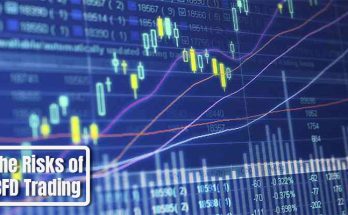Exchange-traded funds (ETFs) have become a popular investment vehicle for experienced investors in Singapore due to their versatility, low costs, and the potential for high returns. With effective market timing, ETFs can offer precision strategies catering to the nuanced demands of seasoned investors. This article delves into the intricacies of ETFs and market timing, offering valuable insights and strategies tailored for the Singapore market.
Understanding ETFs
ETFs are investment funds that trade on stock exchanges much like individual stocks. They typically track the performance of a specific index, sector, commodity, or asset class. For Singapore investors, there are various types of ETFs to consider:
- Equity ETFs: Track stock indices like the Straits Times Index (STI) or global indices like the S&P 500.
- Bond ETFs: Invest in government or corporate bonds, providing steady income and lower risk.
- Commodity ETFs: Track the performance of commodities like gold, oil, or agricultural products.
- Sector ETFs: Focus on specific sectors such as technology, healthcare, or real estate.
ETFs’ primary benefits include diversification, lower expense ratios compared to mutual funds, and high liquidity, making them an attractive option for experienced investors seeking to optimize their portfolios.
The Concept of Market Timing
Market timing involves making buy-or-sell decisions about financial assets by attempting to predict future market price movements. If executed correctly, this strategy can significantly enhance returns but carries substantial risk.
Historically, market timing has been a contentious topic. Some investors have achieved significant success, while others have incurred losses due to incorrect predictions. The key to successful market timing is understanding and mitigating the associated risks and rewards.
Market Timing Techniques
Experienced investors utilize various techniques to time the market effectively:
This technique involves evaluating a company’s financial health and performance by analyzing its financial statements, management, and competitive advantages. Key elements include:
- Economic Indicators: GDP growth, unemployment, and inflation figures can signal the economy’s overall health and influence market movements.
- Company Financials: Earnings reports, revenue growth, profit margins, and debt levels provide insights into a company’s potential for future growth.
- Industry Trends: Understanding sector-specific trends can help identify promising investment opportunities.
Technical Analysis
Technical analysis focuses on price movements and trading volumes, using historical data to forecast future price trends. Key tools include:
- Chart Patterns: Head and shoulders, double tops and bottoms, and flags can indicate potential market reversals or continuations.
- Moving Averages: Simple moving averages (SMA) and exponential moving averages (EMA) help identify trends and potential entry or exit points.
- Momentum Indicators: Relative strength index (RSI) and moving average convergence divergence (MACD) measure the speed and change of price movements, aiding in market timing decisions.
Quantitative Analysis
Quantitative analysis employs mathematical and statistical models to evaluate investment opportunities. Algorithmic trading, which uses complex algorithms to make trading decisions, is popular. These models can analyze vast amounts of data to identify patterns and trends that may not be visible through traditional analysis.
Precision Strategies for Singapore Investors
Successful market timing requires identifying the best times to buy or sell ETFs. For Singapore investors, this means leveraging local market data and global economic indicators:
- Singapore-specific Market Data: Monitoring the STI and other local indices can provide valuable insights into market trends.
- Global Economic Factors: Events such as the Federal Reserve’s interest rate changes, geopolitical tensions, and global economic indicators can impact the Singapore market.
Sector Rotation Strategies
Sector rotation involves shifting investments between sectors based on economic cycles. Understanding sector cycles is crucial:
- Economic Phases: During an economic expansion, cyclical sectors like technology and consumer discretionary typically perform well. In contrast, defensive sectors like utilities and healthcare may perform better during downturns.
- Timing Investments: Investors can strategically allocate funds to sectors poised for growth by anticipating economic phases.
Tactical Asset Allocation
Tactical asset allocation involves dynamically adjusting portfolio weightings based on market conditions. This approach allows investors to capitalize on short-term market movements while maintaining a long-term investment strategy. By periodically rebalancing the portfolios, investors can enhance returns and manage risk more effectively.
Tools and Resources for Market Timing
Successful market timing requires access to reliable tools and resources:
- Online Platforms and Software: Tools like Bloomberg Terminal, TradingView, and MetaStock provide advanced charting and analysis capabilities.
- Economic Calendars and Financial News Sources: Websites like Investing.com and CNBC offer real-time updates on economic events and market news.
- Singapore Exchange (SGX) Resources: SGX provides a wealth of information, including market data, research reports, and investor education materials.
Risks and Considerations
While market timing can enhance returns, it also carries risks:
- Market Volatility: Sudden market shifts can result in significant losses if the timing is incorrect.
- Transaction Costs and Tax Implications: Frequent trading can incur higher transaction costs and tax liabilities, eroding returns.
- Psychological Biases: Emotional decision-making can lead to poor timing decisions. It is crucial to stay disciplined and stick to a strategy.
Conclusion
ETFs and effective market timing strategies can substantially reward experienced Singapore investors. By understanding the intricacies of ETFs, utilizing various market timing techniques, and leveraging tools and resources, investors can enhance their returns while managing risks. The key to success lies in staying informed, disciplined, and continuously improving one’s strategies.
Consulting with financial advisors or brokers that offer ETF trading in Singapore, such as Saxo, can help you get started. Remember that while it is generally noted that ETFs are relatively low-risk, they still carry risk, and traders should not trade with more than they can afford to lose.



